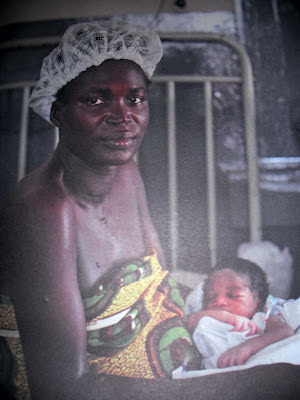African leaders to meet on maternal and reproductive health
BY EDMUND SMITH-ASANTE
Next week, over 150 policymakers and advocates from 27 African countries are scheduled to meet in Kampala, Uganda, to push for accelerated progress in improving maternal, sexual and reproductive health for girls and women.
Next week, over 150 policymakers and advocates from 27 African countries are scheduled to meet in Kampala, Uganda, to push for accelerated progress in improving maternal, sexual and reproductive health for girls and women.
Convened by Partners in Population and Development Africa Regional Office and Women Deliver, a global advocacy organisation that brings together voices from around the world to call for improved health and well being for girls and women, the forum, dubbed Africa Regional Consultation, will bring together about 30 parliamentarians, government ministry officials, civil society representatives and youth advocates.
According to a statement issued by the organisers on Tuesday, March 20, 2012, the meeting, scheduled for March 27 to March 28, 2012, is to review regional success stories, examine lessons learned and identify priorities for future international development goals, to reduce maternal mortality and achieve universal access to reproductive health.
The Africa Regional Consultation is the first of four regional meetings hosted by Women Deliver and partner organizations in 2012, with additional events to follow in Latin America and the Caribbean, Asia and the Middle East and North Africa.
The conversations at these consultations are also intended to help shape the agenda for Women Deliver 2013, Women Deliver’s 3rd Global Conference, which will take place 28-30 May 2013 in Kuala Lumpur, Malaysia.
Addressing the opening will be First Lady of Uganda, Janet Museveni, while other prominent leaders expected to be in attendance to make inputs include Honorable Dr. Christine Ondoa, Uganda’s Minister of Health, and Jotham Musinguzi, Africa Regional Director of Partners in Population and Development.
“The participation of so many high-level African leaders at this meeting demonstrates that the health of the continent’s women and girls is an urgent priority,” said Musinguzi.
“In the lead up to the 2015 Millennium Development Goal target date, it is more critical than ever that we work together to address the maternal and reproductive health needs in our countries and ensure that our actions make a positive and lasting change on as many lives as possible,” he added.
For her part, Jill Sheffield, President and Founder of Women Deliver, said, “Africa faces unique challenges when it comes to women’s health, and organisations and individuals are overcoming those challenges with equally unique solutions,” adding, “This consultation will provide African policymakers and advocates with the opportunity to share their national and regional expertise to tackle some of the most pressing issues faced by girls and women.”
It is estimated that on the average, one in 31 women in sub-Saharan Africa will die during pregnancy or childbirth in view of the inadequacies that exist in maternal health in the region. To address this, Partners in Population and Development Africa Regional Office and Women Deliver believe there is the need for increased access to interventions, including contraception, pre- and post-natal care and skilled healthcare workers, which could help dramatically improve maternal and reproductive health across the continent.
But although available statistics say since 1990 maternal mortality has decreased by 26% in sub-Saharan Africa, they add that 39% of pregnancies are still unintended, and only 17% of married women of reproductive age use modern contraception.
Launched in 2007, Women Deliver works globally to generate political commitment and financial investment for fulfilling Millennium Development Goal #5 — to reduce maternal mortality and achieve universal access to reproductive health.
Building from the groundbreaking conferences Women Deliver convened in 2007 and 2010, the initiative harnesses commitments, partnerships, and networks to help prevent the approximately 350,000 deaths of girls and women from pregnancy- and childbirth-related causes that occur every year.
Women Deliver’s message is that maternal health is both a human right and a practical necessity for sustainable development.




Comments
Post a Comment